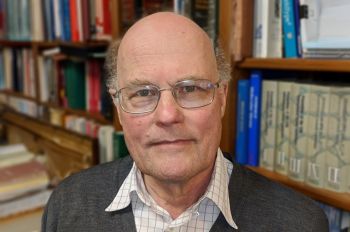Rogachev’s Group Discovers Tool for Tuning of Magnetic Coupling between Delocalized Radicals; Results Published in Chemical Science
Andrey Rogachev, assistant professor of chemistry, and his research group discovered an efficient tool for fine-tuning magnetic coupling between delocalized radicals. This research is a continuation of previous research the group has done on quantum chemical investigations of fullerene fragments or buckybowls. The group’s most recent findings were published in Chemical Science (impact factor 9.14).
The problem of synthesis and isolation of polyaromatic molecules in their highly reduced states, especially those having unpaired electrons (so-called open-shell systems or radicals), is one of the most challenging in modern organic chemistry. Until recently, only a few of these molecules were successfully prepared. Previously, Rogachev’s group found that curved polyaromatic fragments such as corannulene can be stabilized in their highest reduced, tetra-anionic, state in sandwich-like supramolecular aggregates. They also predicted stabilization of open-shell tri-anionic systems. These studies resulted in a joint theoretical-experimental publication in Chemical Science in 2016.
In their most recent study, Rogachev’s group performed an extensive theoretical modeling which revealed that magnetic coupling between polyaromatic radicals in such supramolecular aggregates can be fine-tuned by using alkali metals of different size. This resulted in successful synthesis and isolation of different supramolecular aggregates. This research is significant, as the directed design of building blocks with pre-determined magnetic properties brings scientists one step closer to the efficient construction of new materials.




